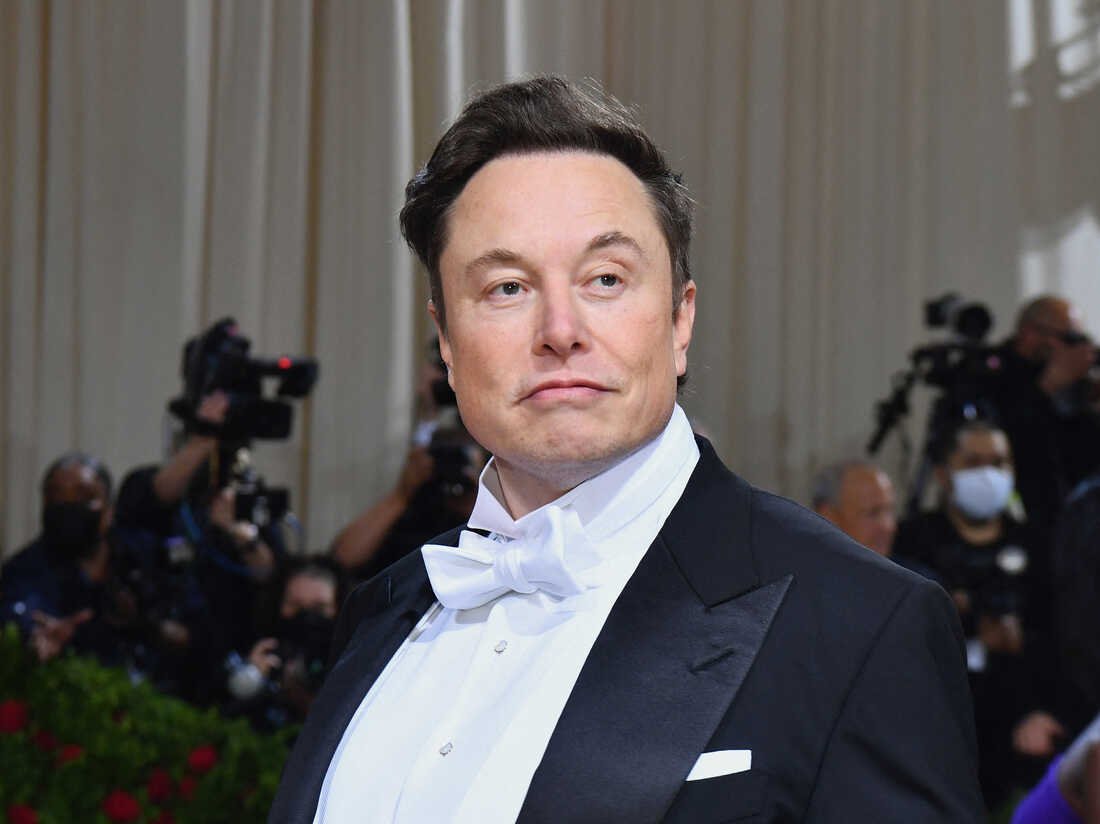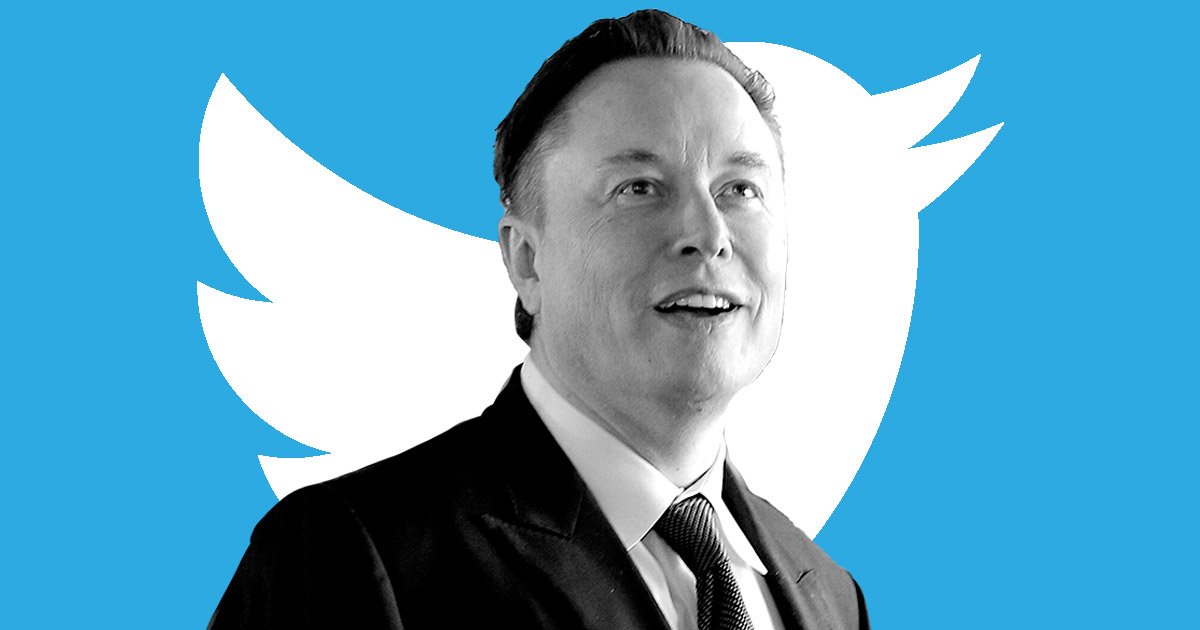What is Elon Musk doing with Twitter?
Elon Musk purchased Twitter for $44 billion earlier this year. (Photo courtesy of NPR)
Elon Musk’s impact on politics, the economy, climate, social media and general society goes without saying, but that’s exactly where the serial-entrepreneur seems to disagree. Musk made a name for himself first through Zip2, a simplistic approach to digitizing city guides and yellow pages that earned him millions of dollars through various contractors and a massive merger. Then there was his infamous involvement in PayPal, a company he claims to have founded. In reality, Musk was actually the creator of X.com, a website with a similar structure to Confinity’s PayPal, of which Musk merged with in order to avoid further competition in the growing field of online payments. Musk’s relationship with PayPal’s inception served as foreshadowing for his incessant desire for the spotlight, in which he was formerly the CEO, but was swiftly ousted as investors deemed him an irresponsible leader. SpaceX and Starlink served as outlets for Musk’s ultimate goal of inhabiting outer space, but most know the South African for the innovations he spearheaded at Tesla. Again, Musk did not truly establish Tesla as a company, but was one of its earliest leaders. Tesla’s popularity skyrocketed in coalition with Musk’s celebrity status, as well as his presence on social media. Before Musk had any involvement in Twitter as a corporation, he utilized the platform to stir up law-bending controversy; in 2018, Musk irrationally tweeted that the company had secured enough public funding to transition to being private, which was not the truth. This kind of erratic and immature behavior, which often borders on sarcastic satire of the American economy, is what ultimately troubled advertisers, investors and fans of Twitter after he purchased the company for $44 billion. A transaction that dealt with its own Musk-driven ordeals, as he attempted to back out of the deal before being forced to take on $13 billion in loan debt in order to provide the funds needed to secure the exchange. Musk is now the self-proclaimed ‘Chief Twit’ and for better or for worse, onlookers have now received an unprecedented amount of transparency in one of the most significant business acquisitions in history.
Immediately after purchasing Twitter, Musk riled up pundits and bystanders by claiming that the reversal of former President Donald Trump’s account ban would occur due to the punishment’s unnecessary nature, as Musk perceived it. Evidently, the Jan. 6, 2021 insurrection’s wounds had not healed, subsequently causing many advertisers to believe Twitter will become what Musk said it wouldn’t: a “free-for-all hellscape”. To add on to the onset panic, Musk immediately discharged many of Twitter’s executives, in which he comically proclaimed that “the bird is freed” soon after posting a video of himself walking into Twitter headquarters with a kitchen sink to kick off his tenure as CEO. Jokes like these are not only the kind of humor that Musk has been berated for, as they are cringe-worthy dad jokes that show a clear yearning from Musk to connect to the youth that has bolstered him upon a pedestal of idealization, but it effectively showcases Musk’s nonchalant detachment to the severity of the failing business he has usurped. Twitter had long been in the red in terms of profit, Musk understood this and implemented a strategy of throwing monetary schemes against the wall with the hope that at least one would stick. This was epitomized by the development of Twitter Blue, a subscription service that enabled users to purchase the validation of their identity. In the following days, the platform was riddled by fake accounts posing as celebrities, and Musk himself, to which caused the CEO to suspend its rollout. While Musk was firing on all cylinders in regard to money making ideas, he was also literally firing thousands of employees, including entire teams that would leave many technological aspects of Twitter unsupervised. This culminated in the now ongoing controversy of Musk repealing the Covid-era Silicon Valley leniency of a hybrid workplace; Musk sent out a mass email on Nov. 16 that demanded employees forfeit their dynamic schedules to work long hours in person. This led to a mass exodus of employees who either physically could not commit to this mandate, or vehemently opposed its spontaneously rigorous tone. As has been common with Musk’s decision-making after taking over Twitter, he retroactively altered his demand to allow sector leaders to determine whether employees were contributing enough to still maintain their original work schedules. These choices reinforce a common theme of Musk’s lack of empathy for his subordinates, as was first depicted by how he originally desired to commence his first round of layoffs before many employees were about to receive bonuses. Advisors eventually convinced him otherwise, but Musk’s refusal for hesitance illustrates both the dire situation that Twitter is in, as well as his propensity to achieve his goals by any means necessary. For a normal CEO, these decisions could be made behind an iron curtain and buffered by high-ranking associates, but Musk’s affinity for the public eye has placed a microscope on every move he makes. These are self-inflicted wounds that could be easily avoided, but with tweets like his most recent poll to let Musk-faithfuls, bots and other Twitter users to determine if Trump’s account should be reinstated demonstrate his minuscule regard for procedure, instead opting to wield monolithic control over company plans. Musk desperately wants to circumvent authority, but constantly chooses to announce seismic shifts, rather than handling them internally, which consistently reaffirms the notion that there is no method to his madness.
Musk demanded that employees work longer hours in-person. (Photo courtesy of Adweek)
That’s the main conundrum at hand; Musk wants more than anything to be devoid of third-party intervention in his oversight of Twitter, but he also has a compulsion to spew out his stream of consciousness at any given moment. This has made Twitter’s restructuring a personal matter, and Musk a target, for all conflicts that arise. Musk never needs to take responsibility for his actions because his tweets indirectly do that for him, which journalists can use to pounce at every minute detail of his daily management. Because Musk handles everything out in the open, most of his employees receive the bulk of their occupational updates through his Twitter account, rather than through the preordained infrastructure that most mega-corporations have. This has served as a catalyst for many disaffected staff members to leak Slack posts, emails, Zoom calls, among other confidential information in order to reveal the true underbelly of Musk’s authoritarian approach to running businesses. This has been emphasized by Musk’s careless oversight of Tesla, which has spawned various lawsuits over malpractice regarding safety standards, wage violations and the highly publicized racial mistreatment lawsuit of Owen Diaz v. Tesla, Inc. Musk’s motivational business practices tend to consist of practically bullying his employees into working harder, and while normally that kind of treatment goes unnoticed in the grand scheme of elite conglomerates, the scale at which Twitter is experiencing it is being especially highlighted because of Musk’s incapability of keeping his mouth shut and his fingers from tapping the tweet button. After Twitter had laid off about half of their nearly 7,500 person staff, the aforementioned work schedule mandated weighted employees with an ultimatum. Some had the luxury of being able to walk away with their dignity, for which some were rewarded with Musk begging employees to return after realizing entire department teams were vacant. One of these desolate departments includes Twitter’s Gizmoduck service that wields personal user information for the app, certainly a concern for the platform’s hundreds of millions daily users. More than this though, certain employees are practically being held hostage by the fact that they’re on work visas for which unemployment could lead to deportation.
Twitter seems to be on the brink of destruction, a perception that is certainly not alleviated by the public discourse that Musk is promoting in deciding whether to reactivate Trump’s account. Musk has claimed that he is in support of ‘freedom of speech’, but not ‘freedom of reach’; this effectively means that while he may permit hate speech or the dissemination of misinformation, he won’t promote it. This is a dangerous belief to publicly voice, as it will certainly incite federal involvement to decide if this philosophy is constitutional, if the app is not removed from Apple’s app store for its currently officially undefined guidelines of how it handles this kind of material. As Twitter grasps at straws to stay afloat and Musk continues to transform the social media platform into a passion project, how long will he be able to avoid accountability?
(Editors Note: Musk reinstated Trump’s account after the poll favored the decision 52%/48%)


